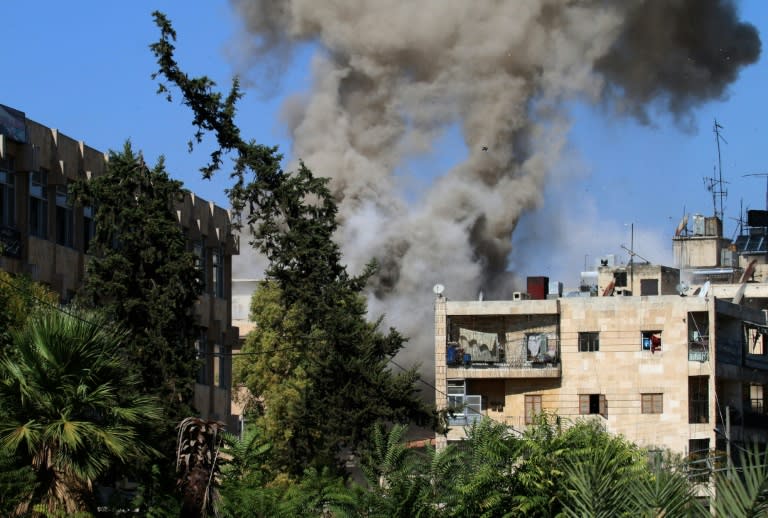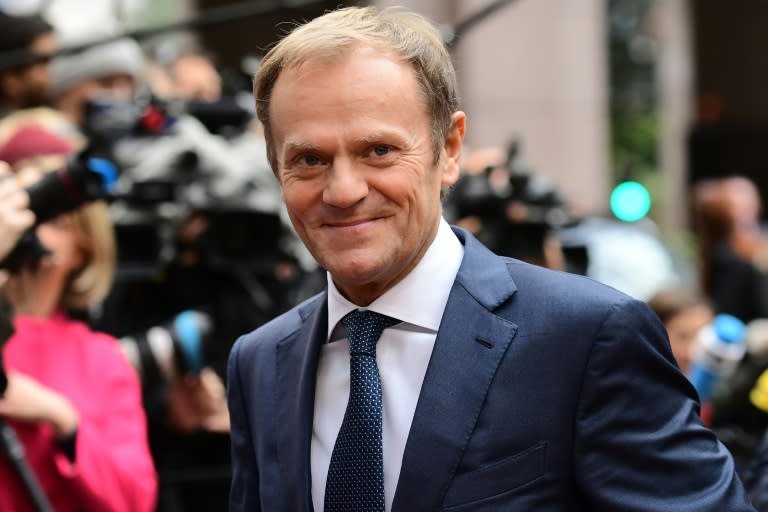EU drops sanctions threat against Russia over Syria
EU leaders backed down on Friday from an explicit threat of sanctions against Russia over the bombing of Aleppo but warned that they would consider "all available options" if atrocities in Syria continue. Italian Prime Minister Matteo Renzi demanded that any mention of possible punitive measures against Moscow over the Syrian carnage should be removed from a statement issued after a summit in Brussels. The climbdown underscored the deep divisions between the 28 European Union leaders as they tried to thrash out a long-term strategy on their increasingly bellicose eastern neighbour. The watered-down statement said the EU "strongly condemns the attacks by the Syrian regime and its allies, notably Russia, on civilians in Aleppo" and called for an "immediate cessation of hostilities." "The EU is considering all available options, should the current atrocities continue," it added. An earlier draft had mentioned sanctions. Russia had upstaged the summit by announcing that it would halt hostilities over Aleppo on the same day, and said Thursday it would extend the truce by 24 hours. EU President Donald Tusk, who had earlier said that sanctions should be on the table, insisted that the leaders had agreed to "keep the unity of the EU" over Russia. The leaders brought up Russian "airspace violations, disinformation campaigns, cyber-attacks, interference in political processes in the Balkans and beyond" and other issues. "Given these examples it is clear that Russia's strategy is to weaken the EU," said Tusk, the former prime minister of Poland, one of the countries that is most hawkish on Russia. The EU is due to decide at their next summit in December whether to renew sanctions over the Ukraine crisis for another six months. But the European Union remains split over how best to deal with Russia, with countries such as Italy and Greece favouring selective engagement with a major economic partner and energy supplier. - 'Inhuman bombardments' - Renzi, at whose request the EU held the discussion on Russia, said the priority had to be to "make all possible efforts to find a peace deal in Syria." "I believe there wouldn't have been any sense in inserting a reference to sanctions, while the rest of the statement was what foreign ministers approved on Monday," he told reporters. The leaders of France and Germany had also called for sanctions to remain on the table after they met Russian President Vladimir Putin for talks on Wednesday night in Berlin. German Chancellor Angela Merkel said after the summit that the EU "cannot accept these inhuman bombardments". "If this kind of violation continues, of course we will envisage all available measures in order to react to this," she told a press conference. Merkel added: "I think there was fairly broad agreement concerning the strategic options on Russia". French President Francois Hollande said earlier that "all options are open for as long as there is not a ceasefire that is respected and for as long as there is an intention to destroy this town, Aleppo, a town of martyrs." British Prime Minister Theresa May, arriving for her first EU summit since the June Brexit vote, called for a "robust and united" European approach to "sickening atrocities" in Syria. NATO chief Jens Stoltenberg joined the chorus of outrage, saying the alliance feared that a Russian aircraft carrier battlegroup heading to Syria could join attacks on Aleppo. "We are concerned Russia's carrier group will support military operations in Syria in ways which increase human and civilian suffering," Stoltenberg said at NATO headquarters in Brussels. Moscow is Assad's strongest ally and came to his rescue last year when rebels appeared to be gaining ground. Relations with Russia were put on the agenda of the two-day summit in Brussels months ago amid expectations of progress on Ukraine. Since then, the deepening of the Syrian crisis has poisoned the atmosphere while Berlin talks with Putin on Wednesday produced no real progress.




